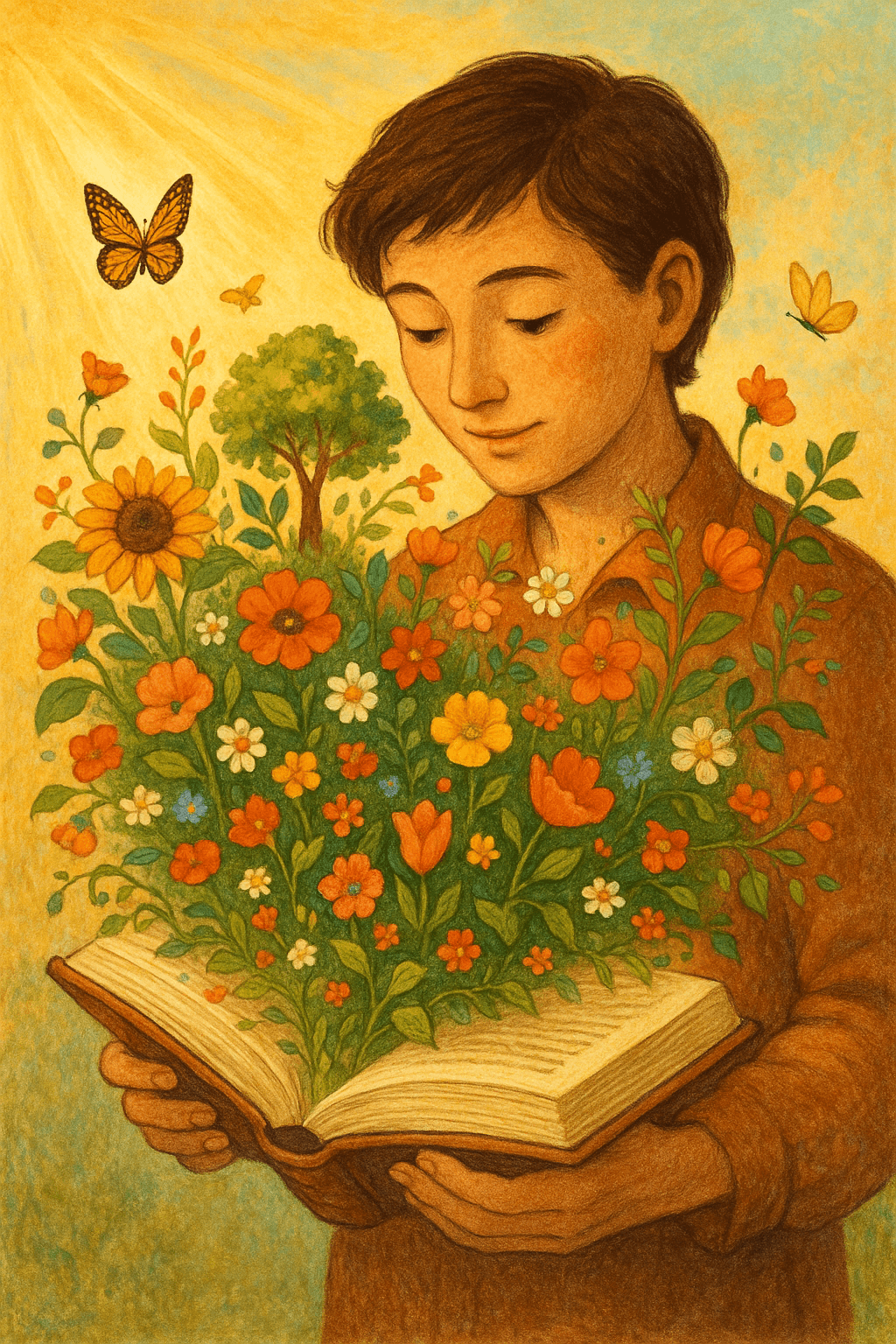A Book Is Like a Garden Carried in the Pocket — Chinese Proverb

A book is like a garden carried in the pocket. — Chinese Proverb
Portable Enrichment
This proverb likens a book to a garden because both offer ongoing enrichment and delight. Unlike an actual garden, which requires physical presence, a book can be carried everywhere, offering its wisdom, stories, and beauty on demand. In Ray Bradbury’s *Fahrenheit 451* (1953), characters memorize books to preserve culture, demonstrating how knowledge can be nurtured and transported within oneself, just as a cherished garden might be mentally revisited while far from home.
Growth and Cultivation
Gardens require care and yield rewards over time; similarly, reading nurtures the mind gradually. As one tends to a garden’s plants, so a reader tends to understanding and imagination. In Frances Hodgson Burnett’s *The Secret Garden* (1911), tending plants parallels the characters’ emotional growth—a process mirrored in absorbing the insights of a good book.
Beauty and Variety
A garden is diverse, filled with colors, scents, and forms; likewise, books open the mind to a multitude of worlds, experiences, and ideas. Just as a single garden may host many flowers, one book may offer many lessons and emotions. For example, in *One Thousand and One Nights*, each story blooms anew, much like different blossoms within the same garden.
Healing and Solace
Gardens are often places of peace and restoration. Books too can provide solace, guidance, or escape during difficult times. The narrative of Antoine de Saint-Exupéry’s *The Little Prince* (1943) uses the image of a rose—a literal garden element—to convey comfort and reflection on love and friendship.
Cultural Transmission
Gardens can contain plants from distant lands, just as books transmit knowledge and culture across time and space. With a book, one can access the wisdom of ancient civilizations or the imagination of distant cultures, effectively carrying a curated ‘garden’ of humanity’s collective thought. The Chinese classic *Dream of the Red Chamber* (18th century) presents a rich literary landscape, offering readers a glimpse into Qing dynasty society—a true garden of cultural insight.